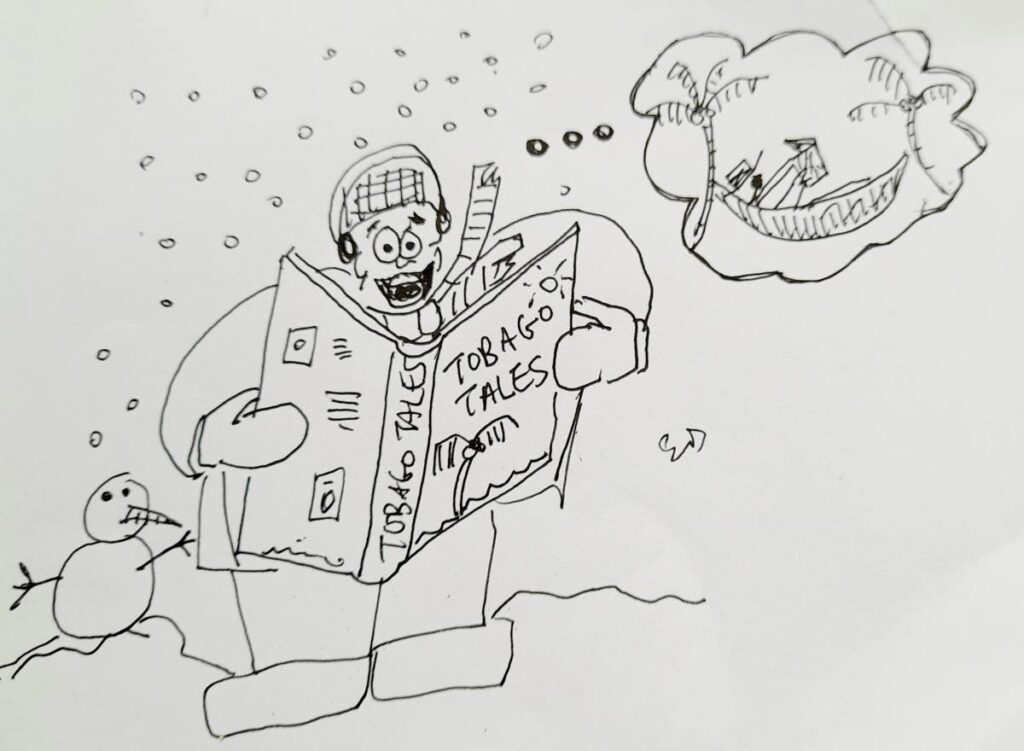Storytime tourism

A few weekends ago I read Mermaid of Black Conch – the compelling sixth novel by multiple award-winning Trinidad-born UK-based writer Monique Roffey. Her otherworldly visual descriptions of the mermaid and "translation" of familiar local locations and character types into somewhat mystical versions of themselves transported me to the movie theatre of my mind.
Upon completion of the novel, I felt, as I often do at the end of a film that has captured me, immersed in its essence, quite like the experience of relishing the lingering scent from a perfumed individual who has left the room.
In order to read the novel without the usual possible interruption or distractions, I abandoned my routine and chose special locations in which to sit, while having something to eat and drink. My chosen spots were both seaside (coincidental, as the sea is integral to the novel) – Shore Things Cafe (Lambeau) on the Friday and Waves Restaurant (Grafton) the day after. Taking time to relax and read was like being on vacation and travelling to another locale, albeit a fictional one.
I could not purchase a copy of Mermaid of Black Conch in Tobago since there are "no proper bookstores in Tobago," as someone put it recently. RIK Bookstore (once in Gulf City Mall, Lowlands) closed years ago. It was the island's one-stop-shop for a range of fiction and non-fiction publications, stationery and art supplies.
To my (and others’) knowledge, the few bookstores that currently exist on the island sell school texts and stationery items.

Where does an avid reader go if he or she is in Tobago and wants to purchase or read a new novel? Options include:
1. Borrowing the book from someone on the island (which is what I did to read Mermaid of Black Conch)
2. Ordering online in e-book format (not everyone’s cup of tea, as some, myself included, prefer a physical book)
3. Asking someone in Trinidad to buy the book and send it over
4. Borrowing from the library (if it has it).
In a recent conversation (re books) with a Tobago resident, she mentioned that if one is not from a family or culture where reading is a key part of the childhood experience (eg stories at bedtime, receiving books as gifts, etc), it is unlikely that they will be an important part of one's life.
Her comment that the younger generation could experience dementia from as early as their forties sounded possible – given this fast-paced modern world of quick scrolling through social-media posts, brief texts and e-mails, abbreviated words/phrases (idk, lmao, gm, etc), increasing inability to focus on more than a few seconds of text ("I can't read that – it's too long") and a general preference for one-three-minute-long videos.
If a good book can be a gym to build one's mental muscles and imaginative capacity, is the average mind being exercised as much as it could be?
A young Tobagonian man who described himself as "Island Boy" recently told me that he loves to read, but that without a "proper bookstore" on the island, he grew up reading books previously owned by his brother, inherited from his grandmother, brought to Tobago on visits by foreign-based uncles or borrowed from the library. Nowadays, he orders e-books.
I imagine that generations of Tobagonians grew up on a diet of oral, as opposed to written, stories. Well-stocked oral "libraries" – elderly Tobagonians – still walk and talk among us.
Mr B, also known as "the taxi driver with the biggest moustache," is one such treasure. Years ago, travelling with him to Castara, I was treated along the way and back to spellbinding tales – folklore, hearsay, reality, running a gamut of genres – horror, comedy, drama. Captured verbatim, this would be a compelling audiobook. Transcribed and edited (or not) it could be a timeless local publication.
Now is a good time to capture the powerful tales of current Tobagonian elders and create unique local storybooks illustrated by local artists' sketches and paintings and/or by a mix of old and current photographs.
Maybe one day Tobago will have a bookstore selling unique local books like this, and others inspired by or featuring Tobago as a destination. The bookstore can have a local base and also travel to global trade shows, marketing Tobago through what could be called "Storytime Tourism."
Just as compelling oral or written stories have the ability to transport us to the diverse and beautiful realms of our imagination, they have the power to attract us to the diverse and beautiful destinations from which they originate.


Comments
"Storytime tourism"